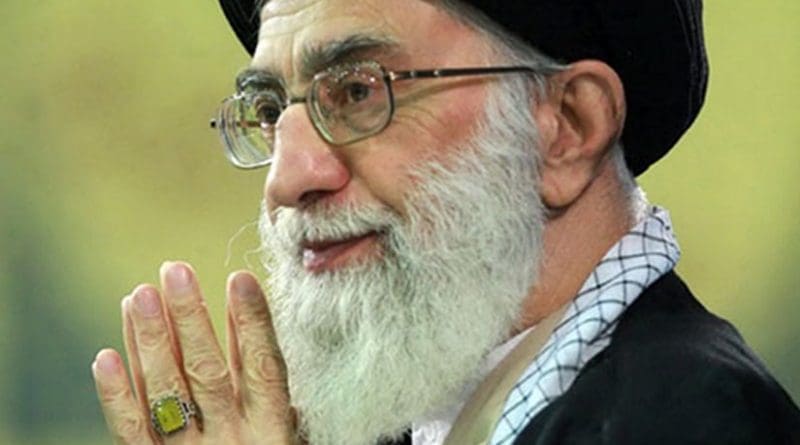Iran’s Growing Questions About The Sanctions – OpEd
Iran’s Supreme Leader, Ayatollah Seyed Ali Khamenei, has instructed the Parliament (Majlis) to review and vote on the nuclear deal reached between Iran and the world powers in July, and has also questioned the parts of the deal, known as Joint Comprehensive Plan of Action (JCPOA) that refer to the suspension rather than annulment of Iran sanctions.
Khamenei’s latest statement, raising questions about the JCPOA, comes at a time when various US officials devote most of their energy assuring the skeptics about the “snap back” and the like, instead of clarifying the nature and timeline of their removal of Iran sanctions; this is not to mention the unpleasant language of military threat that has resurfaced in full fury since the breakthrough agreement in Vienna.
With respect to Iran’s parliamentary approval, Ali Larijani, the powerful speaker of Majlis who was recently in New York for an inter-parliamentary meeting, told an Iranian audience that he foresees a more energetic role by Majlis on the nuclear issue in the near future. Larijani, who backs the deal and is considered an important ally of President Hassan Rouhani, will have his work cut out for him, in light of the strong reservations toward the deal by the majority faction known as the Principalists, some of whom have clashed with the members of the negotiation team who have testified at Majlis.
Henceforth, while President Obama has declared victory by securing the Congressional votes that safeguards the nuclear deal from any derailment by the opponents of the deal, the situation in Iran is turning more complicated and casts a cloud of uncertainty on the JCPOA’s future.
One of the thorny issues is the separate agreement between Iran and the International Atomic Energy Agency (IAEA), which is confidential and is key to resolving the disputes over the so-called “Possible Military Dimension” (PMD) issues and concerns raised by the agency. Since this agreement is confidential, it is unclear if the members of Majlis will be privy to information about it, which might be essential to their ultimate verdict on the agreement.
According to the head of IAEA, Yukiya Amano, the PMD agreement is moving forward with Iran’s submission of substantial new information, and the issue is set to be resolved before the year’s end, assuming a smooth progress. Should the IAEA press for access to certain military sites, then this would certainly complicate the prospect of PMD’s resolution in the next three months. And since the IAEA’s certification of Iran’s compliance is key to the removal of sanctions, the whole issue has raised concerns in Iran that the IAEA might be manipulated by certain powers to refrain from giving Iran a ‘clean bill of health’ in order to linger the cloud of suspicion on Iran’s head and also to delay the sanctions’ relief, which is badly needed for the struggling Iranian economy, in light of the declining oil prices.
From Tehran’s vantage point, it is imperative that the other side provides further guarantees that it will stick to the terms of its obligations under the JCPOA and avoid bad-faith implementation that would erode the trust-building between the two sides. Tehran is certainly disquieted by the “liberal imperialist” American discourse that reinterprets the JCPOA as a means of “containing Iran” and uses it as a hammer to knock down Iranian power in the region.
The earlier expectations of the JCPOA as a prelude for the normalization of US-Iran relations has been to some extent evaporated, replaced instead by a new mood of mutual hostility — that is disfunctional for the vested interests of both sides, given the potential for incremental improvement and even select US-Iran cooperation on regional issues provided by the landmark agreement. Khamenei has questioned the hawkish anti-Iran pronouncements of US officials and former officials, which some view as directed for “domestic consumption” only, stating that such statements carry consequences and must be rebuffed by Iran.
In light of the above-said, the adoption and implementation of JCPOA faces many hurdles including in Iran, where the coming parliamentary elections have added spinkles of political factionalism to the issue. While it remains to be seen how the critics of JCPOA inside the Majlis will utilize the green light by the Supreme Leader, what is clear however is that U. policy-makers have yet to jailbreak from the confines of “containment” strategy and its binary divisions, as a result of which the prospects for a genuine evolution of Iran-U. relations continues to remain suspended.

